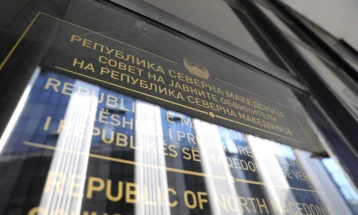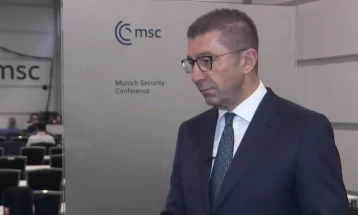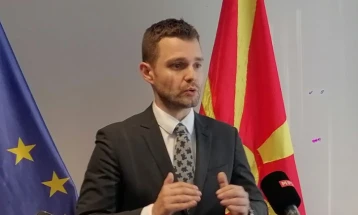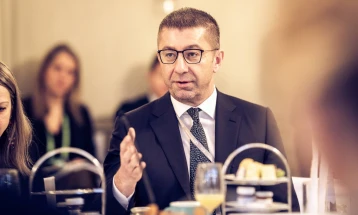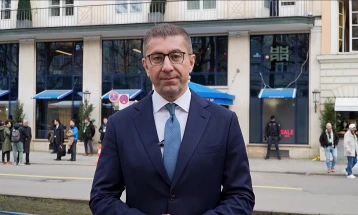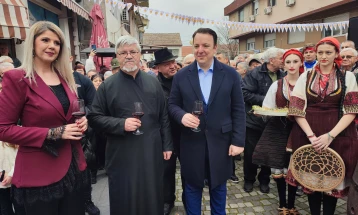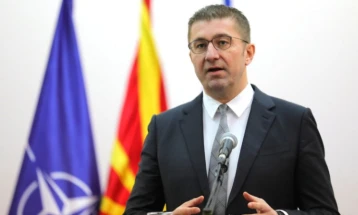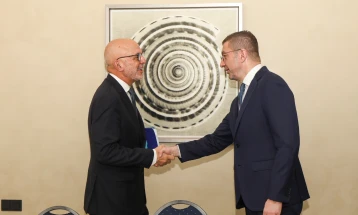Agreements signed on 129 balanced regional development projects worth EUR 13 million (UPD)
- Direct financial support of Mden 800 million (EUR 13 million) for 129 new projects will be allocated to municipalities and planning regions in the country through the Regional Development Programme.

Skopje, 27 November 2023 (MIA) – Direct financial support of Mden 800 million (EUR 13 million) for 129 new projects will be allocated to municipalities and planning regions in the country through the Regional Development Programme.
The project financing agreements, of which 29 are intended for the planning regions and 100 for the municipalities, were signed at the Government on Monday. The funds are earmarked for the development of local road infrastructure, construction of preschools, purchase of urban equipment and improvement of the citizens' quality of life.

According to the Deputy PM for Economic Affairs, Fatmir Bytyqi, the goal is to reduce the disparity in the country's socio-economic development as well as the rural-urban divisions, and to improve the overall social well-being.
"Unfortunately, we are in a situation where the difference between the most underdeveloped region - the Northeast region, and the most developed - Skopje, is 1:7. It is not possible to address this gap if you don't have consistent policies that are incorporated into all the different government programmes," said Bytyqi.
He noted that the Government on November 14 made four decisions providing Mden 800 million from the Budget Programme on balanced regional development for 129 projects to support inclusive regional development and create opportunities to improve the quality of life of citizens in urban and rural areas in all 80 municipalities, in the eight planning regions.
The principle of allocation of budget funds is in inverse proportion to development, i.e. the least developed municipalities and regions receive the most financial resources.
The decision to allocate funds for projects for the development of the planning regions provides Mden 440 million (over EUR 7 million) for 29 regional projects that will be implemented across the eight planning regions. Through the Center for the Development of the Skopje Planning Region, five projects will be implemented in the most developed planning region, regarding which EUR 515,000 have been earmarked, aimed at infrastructure development. On the other hand, the least developed Northeast planning region will get EUR 1,237,000, funds that will be spent on two projects to improve waste management and develop infrastructure for access to tourist sites.

The remainder of the funds will be allocated to the remaining six planning regions, fairly distributed according to the level of development, and intended for the development of energy efficiency, tourism, local road infrastructure, as well as infrastructure for young people, for sports and recreation, for the regulation of riverbeds, and improvement of sewerage and water networks.
The other three decisions of the Government approve about Mden 360 million (about EUR 6 million) for 100 local projects that will be implemented through the local self-government units, covering all 80 municipalities. In this way, Bytyqi pointed out, we reduce the differences in the opportunities for economic and social development of citizens in the urban and rural environments.
Bytyqi added that the Government's decision to allocate funds for projects for the development of villages approves Mden 120 million (EUR 2 million) for 39 projects that will speed up rural development and contribute to bridging the gap between cities and villages.
"These are projects mainly aimed at the development of rural local communal infrastructure, local roads, infrastructure for water services, increasing waste management capacities in villages across the country, procurement of mechanisation for local public enterprises, regulation of riverbeds and atmospheric sewers, as well as other infrastructure projects that will improve the quality of life of our citizens living in the villages," the Deputy PM noted.
According to him, the Government's inclusive approach in encouraging balanced regional development can also be seen through the decision to allocate funds for projects for the development of urban areas, by which EUR 2 million are approved for 29 projects for the development of urban areas in all eight planning regions. Thus, Bytyqi said, 7.2 percent of the funds will go to projects for the development of urban areas in the Skopje planning region, 11.1 percent in the Southeast region, and 11.3 percent in the East planning region, while 11.9 percent of Mden 119,924,238 have been approved for projects submitted by municipalities from the Pelagonia planning region. Also, Mden 15,830,100 have been approved for urban development in the Polog region, i.e. 13.2 percent of the funds, then 13.3 percent for the Southwest region, 14.7 percent for the Vardar region, while urban development for the Northeast planning region will be supported with Mden 20,747,025, i.e. 17.3 percent of the funds approved by the decision.
In addition, the decision to allocate funds for projects for the development of areas with specific development needs provides Mden 120 million for municipalities and non-governmental organizations from the whole country to implement 32 projects focused on meeting the specific development needs of local communities. These include, among other, protection and development of cultural landmarks, development of content for young people, a feasibility study of energy efficiency in preschools and environmental protection projects.

According to the Minister of Local Self-Government, Risto Penov, the spending of the allocated funds is fully under control through all Government institutions.
"There can be no lack of transparency in these projects. We monitor the projects from start to finish," Penov said.
He noted that the Regional Development Programme takes place every year, it is predictable and allows funding of projects chosen by the local authorities, where mayors and municipal councils identify problems in the municipalities.
"It is not just infrastructure, but also problems in terms of culture, social issues, etc.," said Penov, adding that so fat the Programme has enabled photovoltaics to be installed, schools and municipal buildings to be repaired, and local road infrastructure to be renewed.
With the implementation of the programmes, Penov pointed out, the participation of funds invested in regional development since 2021 exceeds the legal minimum of one percent. He noted that the programmes continue, and in order to enable municipalities to successfully apply for such projects through the UNDP Programme, activities have been launched to implement training projects.
Photo: Government of the Republic of North Macedonia
